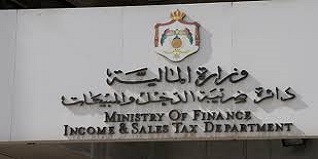18-Jun-2019

The
government recently drafted a draft tax incentive system for the industrial
sector under a basic requirement that the added value of the product should not
be less than 30%. The draft system, obtained by Al Ghad, contains other
criteria after realizing the value added requirement of the product, relating
to the employment rates of Jordanians and women in the factory and being small
and medium enterprises.
The standards also include the supply of foreign
currencies from their sales, in addition to the governorate and the least
developed region excluding the areas benefiting from the system No. 44 of 2016
"Income Tax Reduction System in the Less Developed Regions" and the
areas bordering the Amman Municipality.
The draft law stipulates that the tax
incentives for the industrial taxpayer within this system shall not in any case
exceed 50% of the tax payable by law under this Law.
The draft system is
limited to providing tax incentives to the food products industry,
non-alcoholic beverages, mineral water production and other bottled water,
leather products and related products, textiles and clothing, wood and wood
products, cork and furniture.
It also includes the manufacture of paper, paper
and printing products, chemicals, chemical products, pharmaceuticals and
pharmaceuticals, rubber and plastics products, other non-metallic products,
base metals and the manufacture of melded metal products, equipment, computers
and electronic and optical products, as well as the manufacture of electrical
equipment, Trailers, fireworks, regular and wheelchairs, jewellery making,
ornaments and related items. According to the draft system, the industrialist
will be given a number of specific points if the proportion of Jordanian labour
during the entire tax period ranges between 40% and 80%, and this rate is
raised 10% for each subsequent year.
The industrial taxpayer also gives a
number of specific points if the percentage of Jordanian labour of women is not
less than 15% of the total employment during the entire tax period, except for
the manufacture of leather and related products, textiles and clothing for
factories established outside development zones and qualified and development,
Not less than 25%.
The taxpayer will give the industrial points a number of
specific points if his industrial activity in the least developed provinces
excluding the areas benefiting from the system No. 44 of 2016 "Income Tax
Reduction System in the Least Developed Areas" and the areas adjacent to
the boundaries of the Municipality of Amman.
The taxpayer shall also include if
he works in small and medium-sized industries and his sales to the local
industry constitute at least 10% of his total sales.
The percentage of
purchases of the local company sold shall not be less than 1% of the total
purchases during the entire period of the tax period.
It is noteworthy that the
small industrial companies according to the definition of the Ministry of
Industry, Trade and Supply, which employs workers between 10 and 49 workers and
registered capital of 30 thousand dinars and more, while the medium industrial
companies are employing between 50 and 249 workers and the capital registered
30 thousand dinars and more. Despite pledges by the government to the
parliament and the private sector to approve the system of tax incentives for
the industrial sector before the end of last year as an alternative program to
exempt income profits from income tax, which has been completed but has not
complied with it until now, industrialists said earlier for "tomorrow
"He said.
They pointed out that the government's commitment to the
existence of this system was in order to pass the current income tax bill
without facing any objections by the economic activities, which threatened to
take progressive measures if the income tax was raised to 20% without any other
tax incentives.
The Minister of Industry, Trade and Development, Dr. Tarik
Al-Hammouri, said that the adoption of a system of tax incentives for the
industrial sector will be completed in September..
Al-Hammouri told Al-Ghad
that the development of a tax incentive system for the industrial sector is a
substitute for the export earnings exemption program, which ended at the end of
last year, pointing out that there are consultations on this system with the
industrial sector.
It is noteworthy that the industrial sector contributes
about 7.24% of GDP and employs more than 175 thousand workers, while industrial
exports contribute more than 90% of the total national exports at a value of
3.4 billion dinars annually.
×
![]()